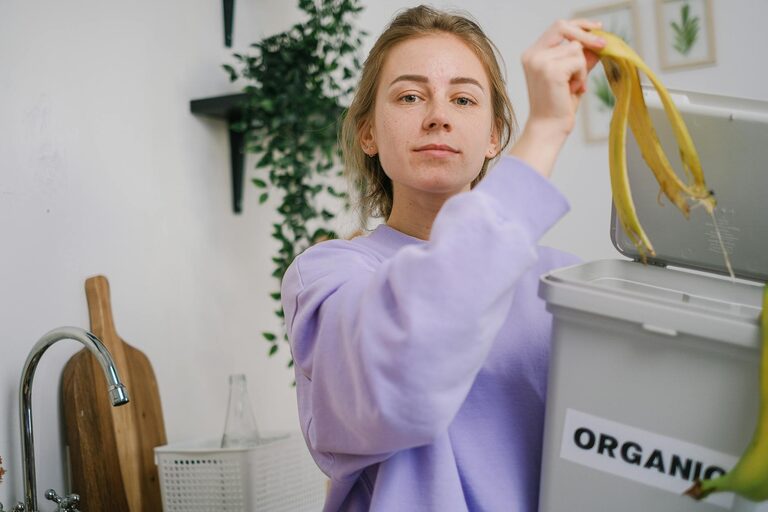Composting is a fantastic way to turn kitchen scraps and yard waste into nutrient-rich soil that benefits your garden and the environment. If you’re new to composting, it may seem a little confusing at first, but with some basic knowledge and a few simple steps, you can start composting effectively right at home. This guide will walk you through everything you need to know as a beginner to get started on your composting journey.
What Is Composting?
Composting is the natural process of recycling organic matter, such as food scraps and yard waste, into a valuable soil amendment called compost. Compost helps improve soil structure, provides plants with essential nutrients, and reduces the amount of waste sent to landfills.
Why Should You Compost at Home?
– Reduce Waste: Composting reduces the volume of food scraps and yard waste going to landfills.
– Improve Soil Health: Homemade compost enriches your soil with nutrients and beneficial microorganisms.
– Save Money: Avoid buying chemical fertilizers by using your own organic compost.
– Support the Environment: Composting lowers methane emissions from landfill sites and supports sustainable gardening.
Getting Started: Choosing Your Composting Method
There are several methods to compost at home. Choose one that fits your space, lifestyle, and preferences.
1. Traditional Compost Bin
A compost bin is a container where you collect and manage organic waste. You can buy a ready-made bin or build one yourself. It helps keep your compost neat and can deter pests.
2. Compost Pile
Simply create a pile of organic material in a corner of your yard. This method requires more space and regular turning but is low cost.
3. Worm Composting (Vermicomposting)
Using special composting worms, you can manage food scraps indoors or in small outdoor bins. Worm castings (worm poop) make excellent fertilizer. Suitable for small spaces and apartment dwellers.
4. Bokashi Composting
This is a fermentation method that uses a special mix for composting food scraps including meat and dairy. It’s fast and odorless but requires a Bokashi bin.
What Can You Compost?
Compost materials generally fall into two categories:
– Greens (Nitrogen-rich): Kitchen scraps like fruit and vegetable peels, coffee grounds, tea bags, grass clippings.
– Browns (Carbon-rich): Dry leaves, shredded paper, cardboard, small branches, straw.
Aim for a balance of roughly 2 parts browns to 1 part greens to keep your compost healthy.
Items to Avoid:
– Meat, dairy, and oily foods (except for Bokashi method)
– Pet waste
– Diseased plants
– Invasive weeds or seeds
Step-by-Step Guide to Starting Your Compost
Step 1: Select Your Spot
Choose a dry, shady area that’s convenient to access. Good airflow and some moisture help the composting process.
Step 2: Set Up Your Bin or Pile
Place your bin or begin a compost pile. Ensure proper drainage and ventilation.
Step 3: Add Materials in Layers
Start with a layer of coarse browns like twigs to improve airflow. Alternate layers of greens and browns. Chop large pieces to speed decomposition.
Step 4: Keep It Moist
Your compost should be about as damp as a wrung-out sponge. Water occasionally if it’s dry, or cover during heavy rain.
Step 5: Turn or Aerate Regularly
Every couple of weeks, turn the compost with a pitchfork or compost aerator to add oxygen. This speeds up decomposition and reduces odors.
Step 6: Be Patient
Depending on conditions, compost can take 2-6 months to be ready. Finished compost is dark, crumbly, and smells earthy.
Troubleshooting Common Composting Problems
– Bad Odors: Usually caused by too much green material or wetness. Add more browns and turn the pile.
– Pile Too Dry: Spray with water and turn the pile. Composting slows when dry.
– Slow Decomposition: Chop materials smaller, add nitrogen-rich greens, and turn more often.
– Attracting Pests: Avoid meat, dairy, and oily foods. Keep the bin closed and bury food scraps under browns.
Tips for Success
– Use a kitchen scrap collector to gather compostables easily.
– Shred or chop materials to speed up breakdown.
– Avoid overloading the bin; compost in manageable amounts.
– Monitor moisture and aerate regularly.
– Patience is key—good compost takes time.
Using Your Finished Compost
Spread your finished compost in garden beds, mix into potting soil, or use as mulch around plants. It improves soil fertility, water retention, and plant health.
—
Starting composting at home is a rewarding way to reduce waste and nurture your garden. By following these beginner tips, you’ll be well on your way to producing rich, homemade compost that supports sustainable living. Give it a try—you might be surprised how simple and satisfying composting can be!

